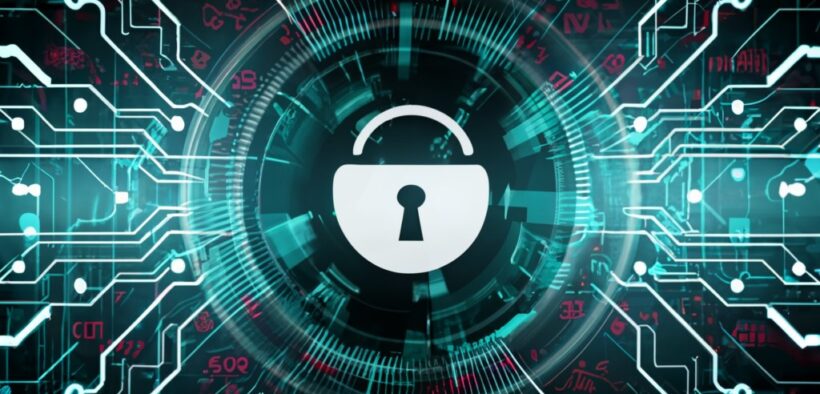FBI Thwarts Volt Typhoon: Chinese Hacking Operation Targeting US Infrastructure Dismantled
Share

The FBI announced the successful dismantling of a Chinese state-sponsored hacking group known as “Volt Typhoon,” which had been targeting vital US infrastructure like power grids and pipelines. Director Christopher Wray told lawmakers the FBI executed a campaign to shut down the group, highlighting the escalating cyber tensions between the US and China.
Volt Typhoon allegedly hacked into hundreds of outdated office routers to gain access to data within US infrastructure systems. China has yet to comment on the accusations, but has a history of denying similar allegations related to state-sponsored cyber attacks.
Wray warned that China’s hacking efforts represent a deliberate attempt to lay groundwork for crippling US infrastructure in potential future conflicts. He emphasized the “Volt Typhoon” group’s efforts to install malware and gain control over routers connected to critical assets, indicating their intent to “wreak chaos and cause real-world harm.”
This incident sheds light on China’s extensive cyber warfare capabilities, with Wray claiming their program surpasses “every other major nation combined.” He also expressed concern about the vast numerical imbalance between US and Chinese cyber agents, with the FBI outnumbered 50 to 1.
Cybersecurity experts warn that China’s targeting of infrastructure reflects a potential strategy to disrupt critical communication channels during geopolitical clashes. This has drawn comparisons to planting physical bombs on vital infrastructure and sparked concerns about the evolving nature of warfare in the digital age.
While Beijing denies all accusations of cybercrime and criticizes the US for Cold War-era tactics, the FBI’s actions and Director Wray’s statements underscore the seriousness of the cyber threat posed by China. This incident serves as a stark reminder of the vulnerabilities within critical infrastructure and the growing importance of cybersecurity measures in today’s interconnected world.
Key Points
- FBI dismantles Chinese hacking group targeting US infrastructure.
- China is accused of laying groundwork for potential future conflicts.
- US-China cyber capabilities disparity raises concerns.
- Incident highlights vulnerabilities and importance of cybersecurity.
Avoiding Future “Volt Typhoon” Incidents Cybersecurity Expert’s Recommendations
The FBI’s disruption of the “Volt Typhoon” hacking group highlights critical vulnerabilities in US infrastructure and the need for robust cybersecurity measures. Here are some suggestions to prevent similar incidents in the future.
Strengthening Defenses
- Patching and Updating Implement– a rigorous patch management system to address known vulnerabilities in routers, software, and firmware across all infrastructure components. Prioritize updating outdated equipment vulnerable to exploitation.
- Multi-Factor Authentication (MFA)– Enforce MFA for all critical infrastructure access, making it significantly harder for attackers to gain unauthorized entry, even with stolen credentials.
- Segmentation and Network Monitoring– Implement network segmentation to isolate critical systems and restrict lateral movement within the network. Continuously monitor network activity for suspicious behavior and potential intrusions.
- Zero Trust Security Model– Adopt a zero-trust approach that verifies every user and device before granting access, minimizing the impact of potential breaches.
Threat Intelligence and Collaboration
- Enhanced Threat Intelligence– Increase collaboration with cyber threat intelligence agencies and share information about evolving threats and attack vectors. This enables proactive defense measures and vulnerability assessments.
- Public-Private Partnerships- Foster public-private partnerships to share expertise, resources, and best practices in securing critical infrastructure. Collective efforts can significantly enhance overall defense capabilities.
- International Cooperation– Collaborate with international partners to counter cyber threats originating from foreign actors. Information sharing and joint operations can disrupt malicious activities and deter future attacks.
Government Action
- Infrastructure Investment– Allocate funding for modernizing critical infrastructure, prioritizing secure technologies and cyber-resilient designs. This includes replacing outdated equipment and implementing robust security protocols.
- Regulations and Standards- Establish clear cybersecurity regulations and standards for critical infrastructure operators, mandating minimum security practices and incident reporting procedures.
- Cybersecurity Workforce– Invest in training and development programs to build a skilled cybersecurity workforce capable of defending against sophisticated attacks. This includes attracting and retaining top talent in the field.
Additional Considerations
- Supply Chain Security- Address vulnerabilities within the supply chain of critical infrastructure components. This includes evaluating vendors’ security practices and mitigating potential risks associated with third-party software and hardware.
- Physical Security- Implement physical security measures to protect critical infrastructure from physical access and tampering. This includes access control, surveillance systems, and perimeter security.
- Incident Response Planning– Develop and regularly test comprehensive incident response plans to ensure swift and effective mitigation of cyberattacks. This includes clear roles and responsibilities, communication protocols, and recovery procedures.
By implementing these recommendations, the government and critical infrastructure operators can significantly improve their cybersecurity posture and reduce the risk of future “Volt Typhoon” type incidents. It is crucial to recognize that cybersecurity is an ongoing process, requiring continuous adaptation and improvement to stay ahead of evolving threats. Remember, these are just general suggestions, and the specific measures needed will vary depending on the specific infrastructure and its unique vulnerabilities.



Your article helped me a lot, is there any more related content? Thanks!
Can you be more specific about the content of your article? After reading it, I still have some doubts. Hope you can help me.
Thank you for your sharing. I am worried that I lack creative ideas. It is your article that makes me full of hope. Thank you. But, I have a question, can you help me?
Your article helped me a lot, is there any more related content? Thanks!
Your article helped me a lot, is there any more related content? Thanks!